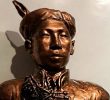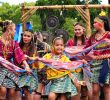DAVAO CITY, Philippines — Like other women of society, the Lumad women have taken various roles in their society. From farming to raising children while their husbands go hunting, they have also taken a wider role of being the voice of their communities.
Such role is not new in the indigenous peoples’ communities, as they have recognized Lumad women in her place of the Lumad struggle through generations for their ancestral domain, rights and self-determination.
Bai Bibiyaon
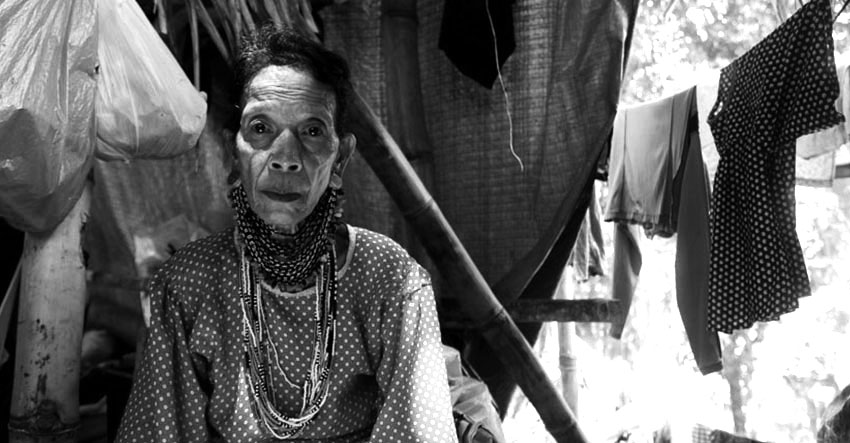
Bai Bibiaon Ligkayan Bigkay. (Ace R. Morandante/davaotoday.com)
In the mountains of Pantaron that traverse Bukidnon and Davao del Norte, the name of Bai Bibiyaon Ligkayan Bigkay is remarkably known as the living woman warrior and chieftain of the Manobo tribe. No less than Datu Guibang Apoga of Talaingod Davao del Norte sought Ligkayan Bigkay, who resides in the Bukidnon part of Pantaron, to unite against the Manobo against the expansion of the logging company Alcantara and Sons in 1994.
This staunch woman leader of the Manobo is conferred the name ‘Bai’, which is an honor given to Mindanao women of stature. “Bibyaon” is her title by acclamation as her tribe’s chieftain.
She led her tribe, along with other community Datus, in defending the 12,600 square kilometer Pantaron Mountain Range, home to one of the largest remaining virgin forests in a country. Pantaron’s watershed supplies the water of major rivers in Mindanao, mainly the Mindanao River, Pulangi River, Davao River, Tagoloan River, and major tributaries of Agusan River.
“The protection of the mountain, the protection of our ancestral domain means the protection all of humanity, so this is not only my struggle, but the struggle for my people and our struggle in defense of humanity,” she said during one of the many forums she has spoken as a representative of the tribe.
She is also one of the Salugpongan tribal leaders who led the Manobo people when they fled their villages in 2014 and went to UCCP Haran in Davao City, as massive military operations affected their community.
As most elder Lumad do not know the year of their birth, people estimate that Bai Bibiyaon Ligkayan Bigkay is now at around 80 years old. Even at her age, she continuously stands at the forefront of the Lumad’s struggle of asserting rights of the Manobo tribe to go back home to their community without intimidation.
“Until they force all of us to fall, nothing can force us to bow away from our stand for our ancestral domain. Until they crush the tribe of Salugpongan, cut off all the trees that stand in the forest, dry all our rivers, make Pantaron fall, then they can say the Salugpongan’s struggle is over! As long as there are people who are aware of the truth and history of the Lumad, and as long as we continue with our struggle, we persevere and we stand. Onward with our struggle!”
The next generation of Lumad women leaders
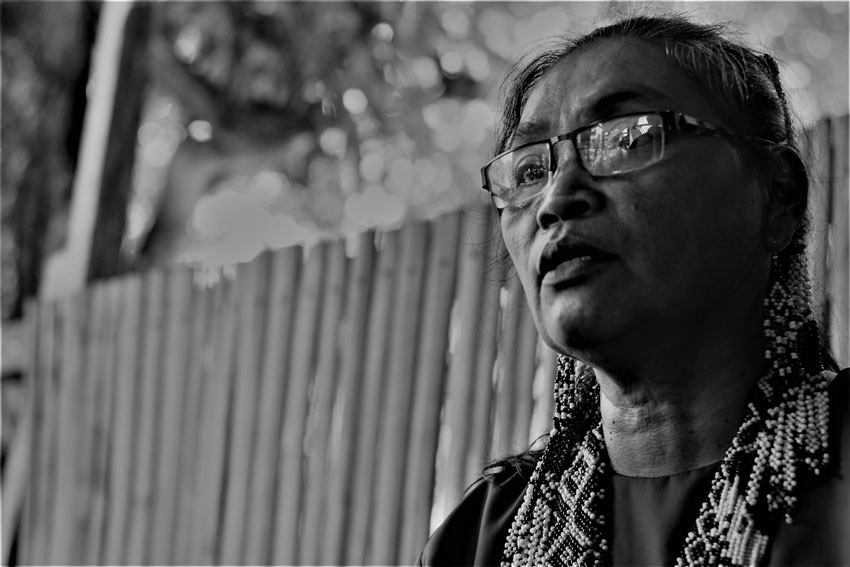
Bayan Muna Representative Eufemia Cullamat. (Kath M. Cortez/davaotoday.com)
At the 18th Congress of the House of Representatives, Eufemia Cullamat carries the voice of the indigenous peoples.
As the third representative of the party-list Bayan Muna, Eufemia delivered her first privilege speech in Congress. The neophyte congresswoman called attention on the Department of Education’s suspension of 55 Lumad schools of Salugpongan Ta tanu Igkanugon Learning Center in Southern Mindanao based solely on reports that red-tagged the school.
In her speech, Cullamat said she only completed elementary school because of the neglect of government, and has no experience in lawmaking. But she said she will carry the same determination she has in bringing the indigenous peoples’ voice in Congress about defending their rights and ancestral land.
“I have no experience in law-making and I am still learning. What is important is that I am certain of what my representation means in Congress. Our tiny voice, the voice of the indigenous peoples across the country should be heard by all means,” said this Lumad leader from Lianga, Surigao del Sur.
Cullamat is one of the women leaders of Manilakbayan, before accepting the nomination to represent Bayan Muna Partylist for the 2019 elections, along with Atty. Carlos Zarate and Ferdinand Gaite.
Giving voice for the indigenous peoples has been her calling. Cullamat personally experienced numerous evacuations from her community in Lianga in the past years and experiences of bombings of her community in the late 1980s.
The struggle is also personal. Her husband was beaten by police on three different occasions. Her son was summoned by a military officer to show up at a detachment. There he was arrested and faced trumped up charges of murder and frustrated murder, and illegal possession of firearms and explosives.
“My experience is not isolated as this kind of disrespect to us, our culture and tradition are everywhere. We face the same harassment, threat, intimidation, and attack every day while only a margin of people speak, stand, and fight for us”.
For Cullamat, Congress is “a battlefield where the interests of the few are not in the picture”. However, the House of Representatives is also an arena where small voices should be heard.
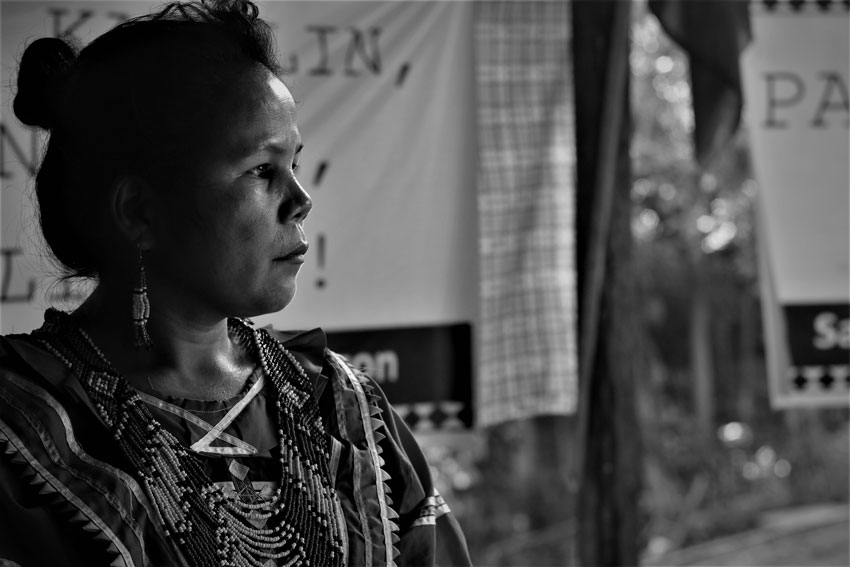
Lorena Mandacawan, member of the Parents-Teachers and Community Association (PTCA) of the Salugpongan schools and Sabokahan chairperson. (Kath M. Cortez/davaotoday.com)
She is a familiar face when the Lumad students and parents troop to DepEd every Monday to stage a picket supporting the Lumad schools.
Lorena Mandacawan, a Matigsalog Manobo, is the spokesperson of the Salugpongan Schools’ Parent Teachers Community Association. She is also a barangay health worker (BHW).
Lorena and her family joined the exodus from Talaingod to UCCP Haran because of the direct threats from the paramilitary Alamara, who accuse her family for supporting the NPA.
As a BHW, Mandacawan extends her service to the tribe and leads a group of women inside the evacuation center to attend to the sick evacuees and ensure health and hygiene.
Lorena is vocal against the attacks on the Talaingod community.
“I can’t sit still and watch my tribe suffer. Little by little, they are killing us as if we are worthless. I told myself there is nothing to be afraid of as many are willing to fight with us despite all the challenges along the way,” she said.
Mandacawan’s stand made her the chairperson of Sabokahan-Unity of Lumad Women. As such she carries the voice of the Lumad women in Southern Mindanao.
“We, the women, carry such grief, especially now that they’re trying to close our schools. We always carry the weight of these challenges, like threats or sexual harassment from the military made against us women. That’s why we women can’t grow passive or weak. We have to stand up! That’s our goal as Sabokahan! We will not stay the same as before when we were seen as just belonging in the kitchen. That’s the view of us. Especially President Duterte who is saying we women have no use. That’s his mistake! Because there is Sabokahan to stand up and struggle! To have our rights recognized as women! To raise the morale of women!”
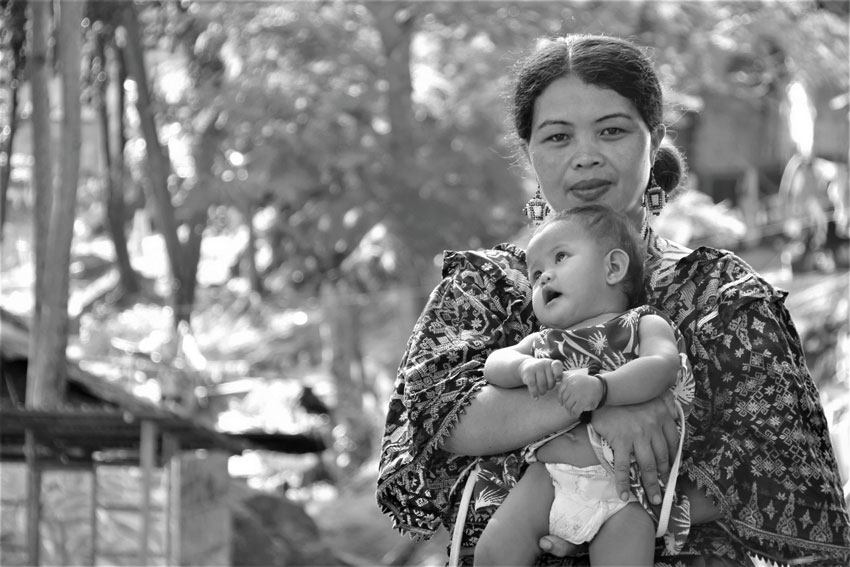
Jennilyn Baguio, secretary-general of Lumad women’s group Sabokahan. (Kath M. Cortez/davaotoday.com)
Another BHW in Arakan, North Cotabato faced the same threats like Lorena.
Jennilyn Baguio is a young mother, who aside from working for the BHW, has facilitated the Pantawid Pamilyang Pilipino Program (4Ps) – a conditional cash transfer program of the government under the Department of Social Welfare and Development.
But all that changed when she was hospitalized to treat her cervical myoma, and the soldiers came.
“I was accused of being an NPA while I was lying in a hospital bed. They say I was injured in an encounter when in fact I was hospitalized due to cervical myoma.”
Due to the threat on her life, she and her family also sought refuge in UCCP Haran.
Born a Tinananon Manobo, Baguio said their culture has huge respect for women. They believe that women are the source of life and that they bear the generations of Tinananon Manobo. Though they don’t have the same status as men in the community, she chooses to be heard.
Recently elected as Sabokahan’s secretary-general, she now carries the responsibility of speaking in behalf of the group.
“Since childhood, I am different among my siblings. I chose to speak up and reason out to my parents whenever something is not right. Up to now, I always believe that speaking is the most powerful arm that the indigenous people community should use to assert and defend our rights”.
These women, from different generations, became leaders as they are confronted with social inequalities and attacks on their tribes. Despite the attacks and threats from the state, they choose to be at the front and not be silent, standing to defend their tribe, their culture, and their ancestral land. (davaotoday.com)

